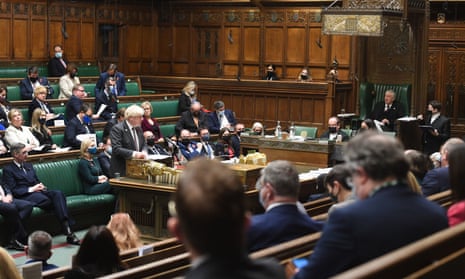A salary of £82,000 a year, roughly three times the national average, plus generous expenses, should be more than enough to attract decent people into a career in politics (MPs could be barred from consultancy roles in sleaze clampdown, 7 November). If it isn’t, the people being deterred probably are best doing other things. There is no need to “tighten restrictions” on MPs’ second jobs when the obvious solution is to ban them altogether.
Furthermore, if an MP finds sufficient time to do additional work, even if it is only a few hours a week, he or she is clearly not devoting enough time to constituency work. The argument that a second job provides MPs with greater awareness of “real life” outside Westminster can be countered by making it compulsory for MPs to spend two weeks of their very long summer break shadowing someone in their constituency doing full-time work for less than average pay.
Alternatively, the minimum age of MPs could become 30, almost fully guaranteeing that some experience of work is gained, prior to entering parliament. Whether “socially useless” work in the City counts as such could be left for the electorate to decide.
Bernie Evans
Liverpool
Your report on the MPs who are consultants or advisers outside their parliamentary work (30 MPs who could be affected by proposed consultancy ban, 7 November) reveals some MPs who are paid more than double their MP’s salary by outside interests. If these amounts surprise people on the average UK salary, then they must feel obscene to people on universal credit.
A small number of MPs are obliged to maintain their professional status by continuing to practise, but this doesn’t apply to Chris Grayling being paid £100,000 by Hutchison Ports as a “strategic adviser”. So here’s an idea that the “levelling-up” secretary may like to address: why not apply a universal credit-type rule on MPs’ additional income, so that for every pound received above their salary, their salary is reduced by that same amount?
Nick Broadhead
Liverpool
One reason cited for MPs having a second job is that such work keeps them in touch with life outside parliament. This may be a good thing, but the kind of work that appears on the list of their outside activities is generally associated with political influence.
Perhaps those drafting new rules should permit additional jobs, as long as they are in occupations experiencing shortages of labour – driving HGVs, jobs in care homes, seasonal work in the fields, or housekeeping jobs in the hotel sector.
Les Bright
Exeter
I see that the trade secretary, Anne-Marie Trevelyan, thinks that MPs having second jobs brings a “richness” to the Commons (Report, 8 November). Well, I agree, and see no harm in MPs making ends meet by taking on other work, so long as it does not interfere with their duties as political representatives.
What about a few hours a week shelf-stacking, or pizza-delivering at times when the House is not sitting? Or perhaps covering shifts in a care home – maybe in their constituencies?
I’m sure they’d find the odd low-paid worker who could advise on fitting it all in with other responsibilities.
Susan Lakeman
Canterbury
